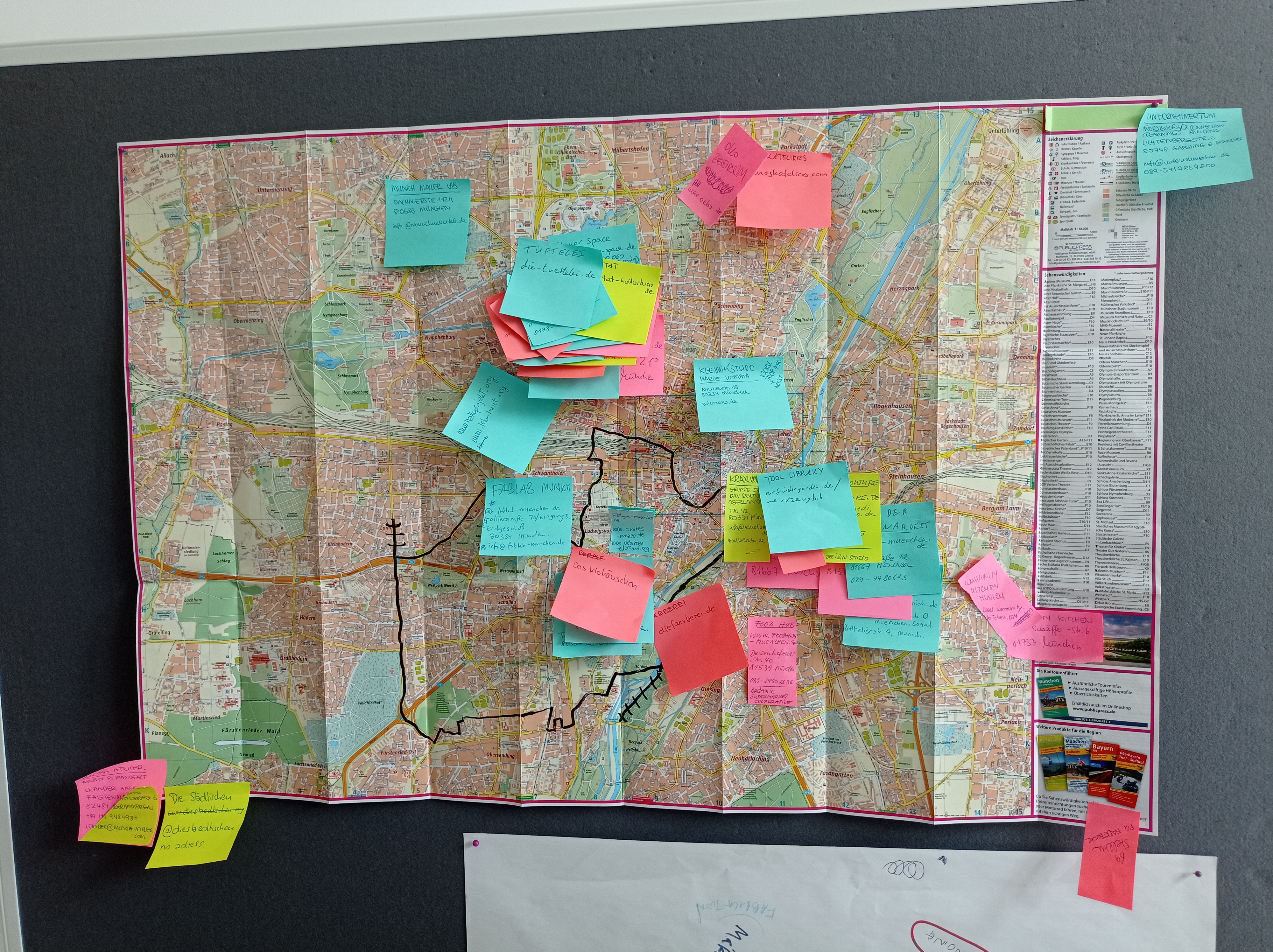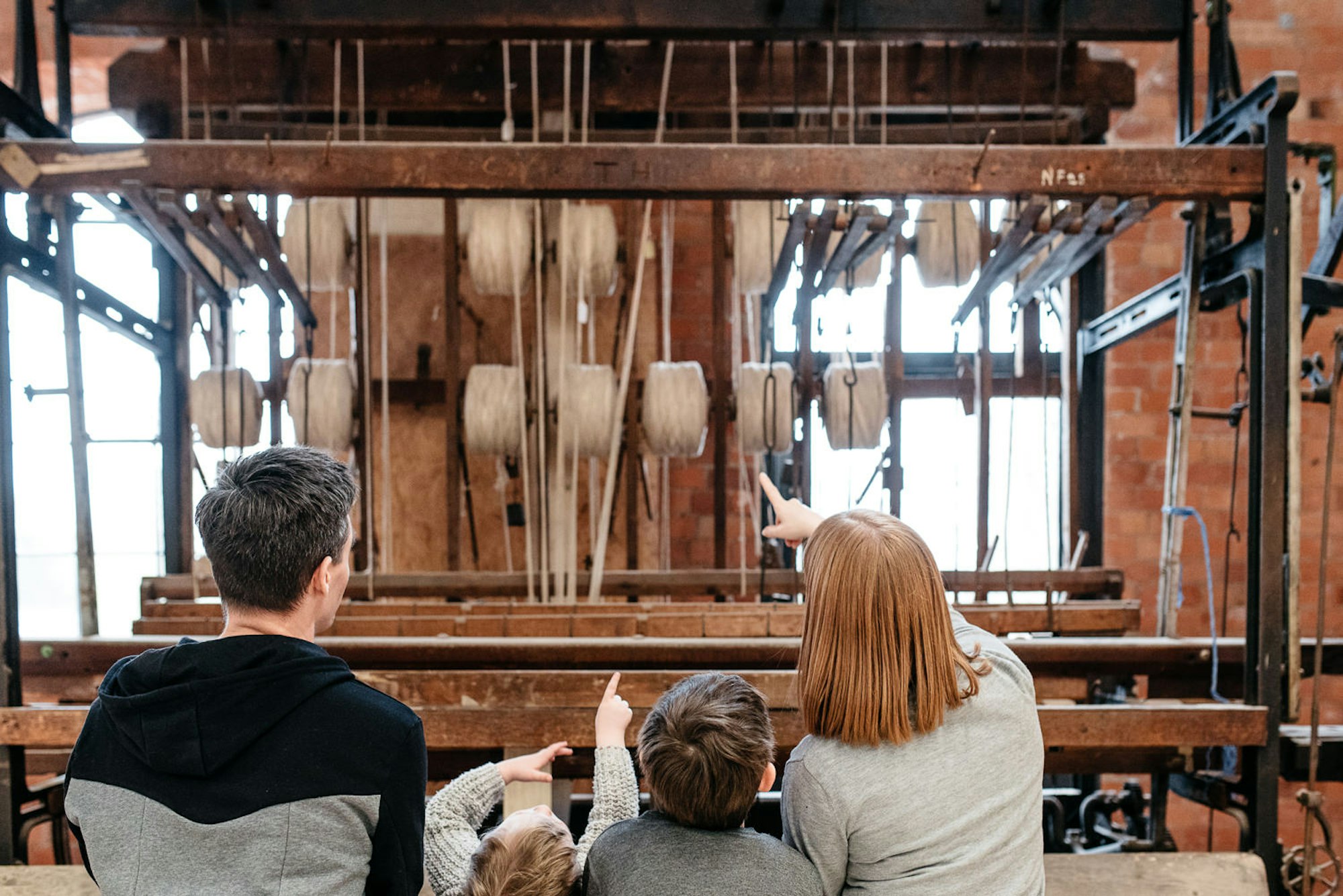Introducing Make Works UAE

We are thrilled to introduce our first international Make Works team. Yesterday during Dubai Design Week, Tashkeel launched their own Make Works.! It's been brilliant to browse around their listings, and discover their manufacturers.
There are loads of listings in Make Works UAE, with more to be added in the coming months. We chatted with Jumana from Taksheel to find out more about their Make Works project.
Why is Make Works important in the UAE?
The UAE is a young country, with an arts and design scene that continues to grow and develop year on year. The fact that it is still so new and undefined makes it a very exciting place to be. With that growth comes a great demand for design work and fabrication, and what better way to facilitate the designers and makers community than to connect them with fabricators, material suppliers, and workshops that can bring their ideas to life. As with many other countries, the best factories and fabricators are hidden in a labyrinth of warehouses in various industrial estates dotted around the country. Many of these factories are not necessarily known to the practioners in the arts and design sector.
I think that the Make Works UAE will be a vital resource for all kinds of creative individuals looking to match with makers. We also hope that the more open and accessible production is in the UAE, the more will take place. This in turn will support the design and makers communities . More micro-businesses and individual creatives will be able to manufacture here in the UAE instead of going abroad. Designers will then be more inclined to explore a broader range of manufacturing processes and materials that were not known to them in the past, and push the limits of their creativity.

What made Tashkeel want to run their own Make Works?
Tashkeel is a contemporary art and design organisation based in Dubai, UAE. It supports the UAE creative community through studio facilities, artists’ residencies, international fellowships, exhibitions, talks and workshops.
As part of its long-term commitment to supporting locally-based designers, Tashkeel annually selects designers from an open call for the Tanween Design Programme. The programme supports designers to develop a range of products that work towards defining a production process, design and aesthetic that responds to the Emirates. After mentoring and working with UAE-based designers, it became clear that there was a massive gap between the designer and makers communities in the UAE. The organisation witnessed the struggle that many of the locally based designers and students would face when trying to locate a suitable manufacturer. It was this urgent need for information and contact that led Tashkeel to launch the first Make Works in the region.
Tashkeel operates as a not-for-profit organisation which aligns with the Make Works belief in sharing knowledge and providing an open access directory that can help not only the design sector but also the wider community.

What have you discovered so far about what manufacturing looks like in the UAE? What sort of fabricators can we expect to see?
The first thing that was apparent to me when I started researching 8 months ago, was the sheer breadth and variation of factories and fabricators right under my nose. Being in a very industrial city, I came across all kinds of manufacturing facilities from mammoth commercial factories to tiny workshops that were manned by one person in a shed. It was a huge learning experience to sift through the different factories and find establishments that were happy to collaborate with designers and members of the public, and to produce objects that are not standard or fixed.
The community in the UAE is a melting pot of different cultures and nationalities. This diversity extends to the manufacturing community as well. I came across craftsmen from countries like India, Nepal and the Philippines who were working in a trade that their forefathers had been a part of, with a level of expertise that could only have been passed down from generation to generation. The multicultural aspect can sometimes be problematic for local designers and makers when it comes to communication but I have seen that they overcome this issue with sketches and diagrams that can be easily understood.
Make Works UAE is also a great platform to document vernacular Emirati material processes and crafts, and to try to preserve and highlight some of these endangered crafts and communities. Some examples would be traditional palm frond weaving, textile weaving and pottery making. These communities are usually very remote and hard to reach but we have managed to pinpoint a few and connect modern makers with traditional craftspeople.
The UAE maker's movement has also been growing lately with fablabs, makerspaces and studios popping up with the latest gadgets and equipment for crafters to tinker with. We have included various types of makerspaces as well as material suppliers and numerous factories that work with wood, stone, pottery, 3D printing, textiles, screen printing, leather, furniture and upholstery, metal and many more.

What are you most looking forward to about starting the project?
I am most looking forward to the directory being used! Knowing that people value and use it to connect with makers in order to manufacture would be so rewarding. It will also be a great opportunity to highlight the skills and expertise of small factories that are hard to find; connecting them to people that will give them a chance to experiment, diversify and produce work that is both challenging and gratifying for all involved.
I am also looking forward to compiling recommendations from various designers and makers based in the UAE, so I can continue to visit and document factories. I hope that Make Works UAE will continue to grow organically and become a substantial resource for the creative community.
Can you tell us more about Tashkeel?
Established in 2008 by Lateefa bint Maktoum, Tashkeel is a contemporary art organisation based in Dubai committed to facilitating art and design practice, creative experimentation and cross-cultural dialogue. Placing the artist at the core, Tashkeel supports the UAE’s creative community through studio facilities, artists’ residencies, international fellowships, exhibitions, talks and workshops.
As part of its commitment to support locally-based creatives, Tashkeel offers two annual programmes providing support and encouragement for both designers and artists. The Tanween programme is one of Tashkeel’s core initiatives, supporting selected designers living and working in the UAE to develop a range of products that are showcased at Design Days Dubai and are available as limited editions through Tashkeel. The Critical Practice Programme provides sustained support to up to three artists each year to develop their work in an environment that encourages progressive experimentation and cross cultural exchange. The programme feeds into Tashkeel’s exhibition schedule, with participating artists presenting works in the gallery.
Tashkeel’s exhibition space accommodates up to six projects a year as well as a series of small-scale events. The programme includes solo and thematic exhibitions, screenings, workshops and seminars, fulfilling Tashkeel’s commitment to bringing art and culture to a wider audience and engaging the local community.

What do you think the future is for local manufacturing?
By creating an accessible and informative directory, more creative practitioners will deepen and diversify their manufacturing activity in the UAE. By doing so, they will gain a first-hand understanding of the limitations and opportunities presented by specific materials or techniques – insight they would not acquire if they contracted abroad. This will lead to a more informed design process, which in time will result in high quality and resolved products being produced.
There's only one way to go from here and that is up. The newest technology and machinery will be introduced by industry to produce higher quality products and respond to the most challenging of designs. Specific gaps in various industries will be filled providing short and medium run capacities, such as metal foundries and ceramic factories. In short, I believe that the manufacturing facilities and factories of the UAE will continue to grow to accommodate the ongoing growth of the design sector.
Find out more about Make Works in UAE here
Find out how to start a Make Works in your city here.
Categories
Article
Related stories
Why Make Work Locally
Alan Moore and Ten30 Fashion
Tips for Manufacturing in Scotland
A Life in Lace
In the Belly of the Beast: my one year manufacturing for Coca Cola



